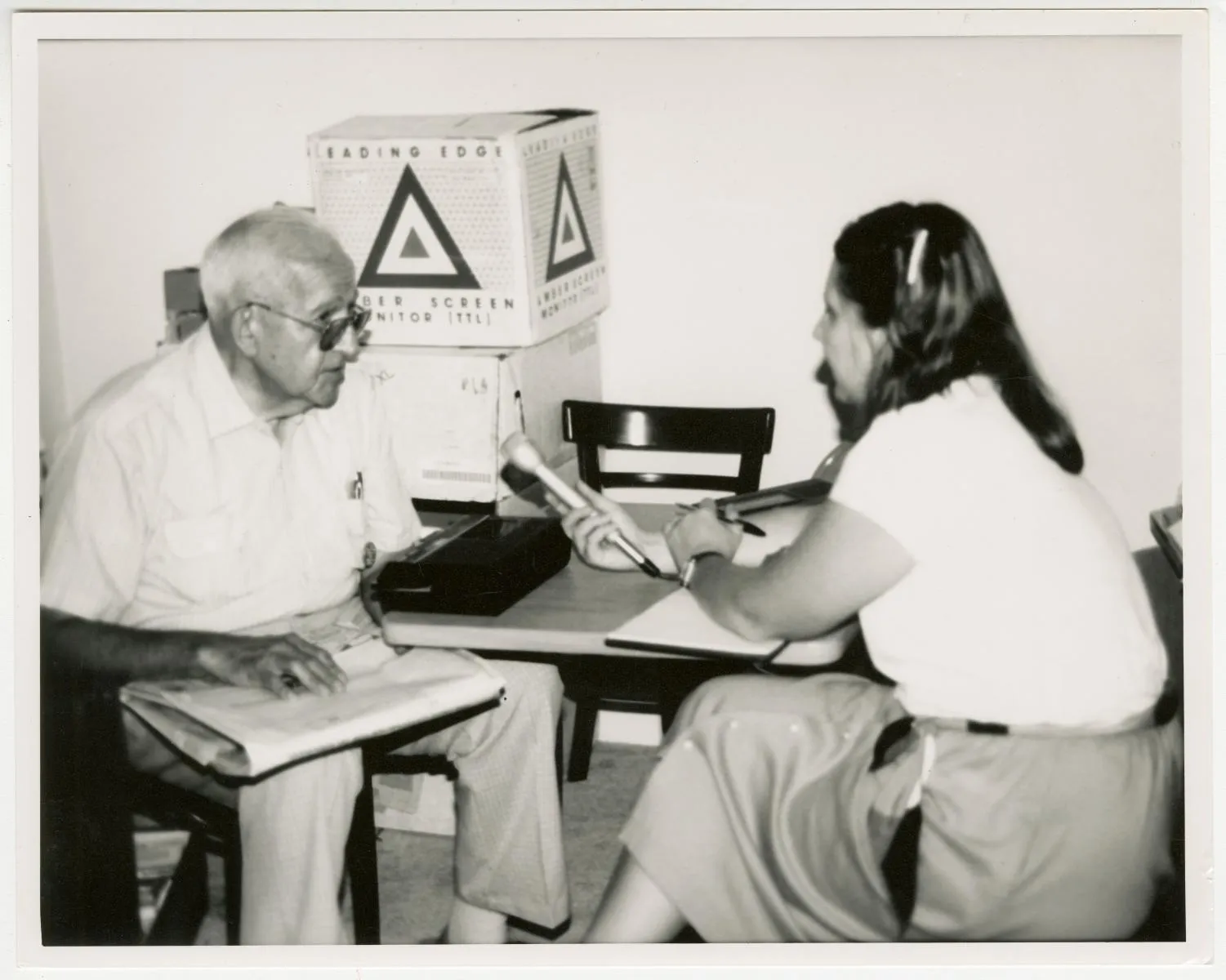
SPEAK ME A STORY
This situated webzine aims to explore the importance of oral tradition, a medium lost in the era of written word and digital media. For the majority of human history, speech and body language have been the singular means of communication. It was only with the invention of cuneiform about 5,000 years ago where textual information began to be able to be recorded and live outside of memories and conversations. The articles selected here are meant to explore the importance of spoken word across cultures, from applications in genealogy to storytelling.
Uniquely, the webzine itself prioritizes spoken word over written text, running counter to the visual-first nature of digital technology. In an effort to bring attention to alternative, accessible modes of navigation on the web, the webzine's articles are designed to be navigated by screen reader only, and are optimized for screen readers and other assistive technologies. The article contents are blurred for sighted readers.
On Screenreaders
It is recommended to familiarize yourself with your platform's screenreader before entering the articles. On Mac devices, VoiceOver can be toggled on and off with ⌘+F5. The main navigation can be activated with CAPS+U (yes, the caps lock button), and has several panes for different modes of navigating a page—recommended is to use the "Headings" pane.
To read an article, it is generally enough across the web to open the "Headings" navigation pane, focus the `h1` element (navigating to it with arrow keys and pressing ENTER), and begin reading using CAPS+A. Now would be a great time to do this—see if you can read "The Importance of Spoken Web" in this page.
Some additional controls to be aware of:
- CAPS+SHIFT+{←,→} to move within a level in the document tree
- CAPS+SHIFT+{↑,↓} to move up/down a level in the document tree
- CAPS+SPACE to interact with a button or link
- CAPS+H to read the current line
- CAPS+L to read the current paragraph
- CAPS+R to read the current word
Our goal here is to increase awareness into alternative modes of navigation across the internet in an informative, engaging manner.
On "Reader Modes"
One caveat to this webzine is that, despite our enforced restrictions, all content is made available to sighted users through browser "reader modes"—simplified, pared-down, unstyled versions of webpages available when a website is sufficiently machine-readable and looks enough like an article.
Rather than garble the HTML of the articles to break "reader mode", I have chosen to let this be an example into the benefits of semantic, accessible HTML. Not only are content semantics accessible, they are machine-readable and often lead to improved SEO and user experience in ways that are not immediately obvious.
- How Philosophy Came to Disdain the Wisdom of Oral Cultures
- In Praise of the Word (African Oral History)
- Oral Genealogies in the Pacific Islands
- 100 Generations of Fiji Oral History — The Nabukelevu Eruption
- Palestinian Oral History as a Tool to Defend Against Displacement
- DNA Confirms Oral History of Swahili People
- From Underground Subculture to Global Phenomenon: An Oral History of Ballroom Within Mainstream Culture